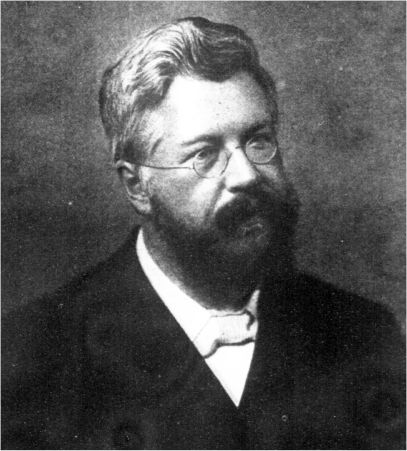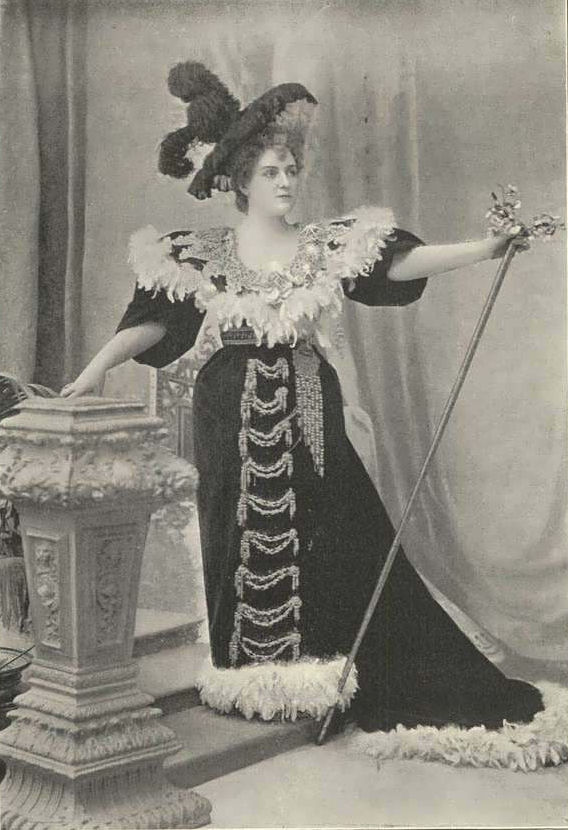|
Edward Jakobowski
Edward Jakobowski (17 April 1856 – 29 April 1929) was an English composer, especially of musical theatre, best known for writing the hit comic opera '' Erminie''. Life and career Jakobowski was born in Islington, London, the only son of Israel Jakobowski (born c. 1819), a salesman dealing in stationery and cigars, and his wife Fanny (born c. 1834), who were both Viennese of Polish extraction. He had an older sister, Helena (born c. 1855). At age six, he moved to Vienna, Austria, where he lived for some 15 years and was given a musical education. In the late 1870s he lived in Paris for three years. In 1881, he returned to London."Edward Jakobowski and Comic Opera" ''Kate Field's Washington'', vol. 9, no. 3, pp. 300–01, 17 January 1894, accessed 24 April 2014 Jakobowski's most successful work by far, ' ... [...More Info...] [...Related Items...] OR: [Wikipedia] [Google] [Baidu] |
Lillian Russell
Lillian Russell (born Helen Louise Leonard; December 4, 1860 or 1861 – June 6, 1922) was an American actress and singer. She became one of the most famous actresses and singers of the late 19th and early 20th centuries, praised for her beauty and style, as well as for her voice and stage presence. Russell was born in Clinton, Iowa, but raised in Chicago. Her parents separated when she was 18, and she moved to New York with her mother. She began to perform professionally by 1879, singing for Tony Pastor and playing roles in comic opera, including Gilbert and Sullivan works. Composer Edward Solomon created roles in several of his comic operas for her in London. In 1884, they returned to New York and married in 1885, but in 1886, Solomon was arrested for bigamy. For many years, she was the foremost singer of operettas and musical theatre in the United States, performing continuously through the end of the 19th century. In 1899, she joined the Weber and Fields' Broadway Music ... [...More Info...] [...Related Items...] OR: [Wikipedia] [Google] [Baidu] |
Composers From London
A composer is a person who writes music. The term is especially used to indicate composers of Western classical music, or those who are composers by occupation. Many composers are, or were, also skilled performers of music. Etymology and definition The term is descended from Latin, ''compōnō''; literally "one who puts together". The earliest use of the term in a musical context given by the ''Oxford English Dictionary'' is from Thomas Morley's 1597 ''A Plain and Easy Introduction to Practical Music'', where he says "Some wil be good descanters ..and yet wil be but bad composers". "Composer" is a loose term that generally refers to any person who writes music. More specifically, it is often used to denote people who are composers by occupation, or those who work in the tradition of Western classical music. Writers of exclusively or primarily songs may be called composers, but since the 20th century the terms 'songwriter' or 'singer-songwriter' are more often used, partic ... [...More Info...] [...Related Items...] OR: [Wikipedia] [Google] [Baidu] |
19th-century English Composers
The 19th century began on 1 January 1801 (represented by the Roman numerals MDCCCI), and ended on 31 December 1900 (MCM). It was the 9th century of the 2nd millennium. It was characterized by vast social upheaval. Slavery was Abolitionism, abolished in much of Europe and the Americas. The First Industrial Revolution, though it began in the late 18th century, expanded beyond its British homeland for the first time during the 19th century, particularly remaking the economies and societies of the Low Countries, France, the Rhineland, Northern Italy, and the Northeastern United States. A few decades later, the Second Industrial Revolution led to ever more massive urbanization and much higher levels of productivity, profit, and prosperity, a pattern that continued into the 20th century. The Catholic Church, in response to the growing influence and power of modernism, secularism and materialism, formed the First Vatican Council in the late 19th century to deal with such problems an ... [...More Info...] [...Related Items...] OR: [Wikipedia] [Google] [Baidu] |
1929 Deaths
This year marked the end of a period known in American history as the Roaring Twenties after the Wall Street Crash of 1929 ushered in a worldwide Great Depression. In the Americas, an agreement was brokered to end the Cristero War, a Catholic Counter-revolutionary, counter-revolution in Mexico. The Judicial Committee of the Privy Council, a British high court, ruled that Canadian women are persons in the ''Edwards v. Canada (Attorney General)'' case. The 1st Academy Awards for film were held in Los Angeles, while the Museum of Modern Art opened in New York City. The Peruvian Air Force was created. In Asia, the Republic of China (1912–1949), Republic of China and the Soviet Union engaged in a Sino-Soviet conflict (1929), minor conflict after the Chinese seized full control of the Manchurian Chinese Eastern Railway, which ended with a resumption of joint administration. In the Soviet Union, General Secretary of the Communist Party of the Soviet Union, General Secretary Joseph S ... [...More Info...] [...Related Items...] OR: [Wikipedia] [Google] [Baidu] |
1856 Births
Events January–March * January 8 – Borax deposits are discovered in large quantities by John Veatch in California. * January 23 – The American sidewheel steamer SS ''Pacific'' leaves Liverpool (England) for a transatlantic voyage on which she will be lost with all 186 on board. * January 24 – U.S. President Franklin Pierce declares the new Free-State Topeka government in " Bleeding Kansas" to be in rebellion. * January 26 – First Battle of Seattle: Marines from the suppress an indigenous uprising, in response to Governor Stevens' declaration of a "war of extermination" on Native communities. * January 29 ** The 223-mile North Carolina Railroad is completed from Goldsboro through Raleigh and Salisbury to Charlotte. ** Queen Victoria institutes the Victoria Cross as a British military decoration. * February ** The Tintic War breaks out in Utah. ** The National Dress Reform Association is founded in the United States to promote "r ... [...More Info...] [...Related Items...] OR: [Wikipedia] [Google] [Baidu] |
Friern Barnet
Friern Barnet () is a suburban area within the London Borough of Barnet, north of Charing Cross. Its centre is formed by the busy intersection of Colney Hatch Lane (running north and south), Woodhouse Road (taking westbound traffic towards North Finchley) and Friern Barnet Road (leading east towards New Southgate). History Friern Barnet was an ancient parish in the Finsbury division of Ossulstone hundred, in the county of Middlesex. The area was originally considered to be part of Barnet, most of which was in Hertfordshire. By the 13th century the Middlesex section of Barnet was known as Little Barnet, before becoming Frerenbarnet and then Friern Barnet (sometimes spelt in other ways, such as "Fryern Barnett"). The "Friern" part of the parish's name derives from the French for "brother" and refers to the medieval lordship of the Brotherhood or Knights of the Hospital of St John of Jerusalem. Friern Barnet was mainly rural until the 19th century. The opening of Colney ... [...More Info...] [...Related Items...] OR: [Wikipedia] [Google] [Baidu] |
Adrian Ross
Arthur Reed Ropes (23 December 1859 – 11 September 1933), better known under the pseudonym Adrian Ross, was a prolific English writer of lyrics, contributing songs to more than sixty British musical comedies in the late 19th and early 20th centuries. He was the most important lyricist of the British stage during a career that spanned five decades. At a time when few shows had long runs, nineteen of his West End shows ran for over 400 performances. Starting out in the late 1880s, Ross wrote the lyrics for the earliest British musical theatre hits, including '' In Town'' (1892), ''The Shop Girl'' (1894) and ''The Circus Girl'' (1896). Ross next wrote the lyrics for a string of hit musicals, beginning with '' A Greek Slave'' (1898), '' San Toy'' (1899), '' The Messenger Boy'' (1900) and '' The Toreador'' (1901) and continuing without a break through World War I. He also wrote the English lyrics for a series of hit adaptations of European operettas beginning with '' The Merr ... [...More Info...] [...Related Items...] OR: [Wikipedia] [Google] [Baidu] |
Brandon Thomas (playwright)
Walter Brandon Thomas (24 December 1848 – 19 June 1914) was an English actor, playwright and songwriter, best known as the author of the farce ''Charley's Aunt''. Born in Liverpool to a family with no theatrical connections, Thomas worked in commerce, and as an occasional journalist, before achieving his ambition of becoming an actor. After a succession of minor roles, he became increasingly sought after as a character actor. He wrote more than a dozen plays, the most celebrated of which, ''Charley's Aunt'', broke all historic records for plays of any kind with an original London run of 1,466 performances, opening in 1892. It has had numerous subsequent productions all around the world, including many film and musical theatre adaptations. Although Thomas never repeated the prodigious success of ''Charley's Aunt'', he maintained a career as an actor and dramatist until his death, acting mostly in comedy, but with occasional serious roles in the plays of Shakespeare and others. ... [...More Info...] [...Related Items...] OR: [Wikipedia] [Google] [Baidu] |
Comic Opera
Comic opera, sometimes known as light opera, is a sung dramatic work of a light or comic nature, usually with a happy ending and often including spoken dialogue. Forms of comic opera first developed in late 17th-century Italy. By the 1730s, a new operatic genre, ''opera buffa'', emerged as an alternative to ''opera seria''. It quickly made its way to France, where it became ''opéra comique'', and eventually, in the following century, Operetta#Operetta in French, French operetta, with Jacques Offenbach as its most accomplished practitioner. The influence of Italian and French forms spread to other parts of Europe. Many countries developed their own genres of comic opera, incorporating the Italian and French models along with their own musical traditions. Examples include German ''singspiel'', Operetta#Austria–Hungary, Viennese operetta, Spanish ''zarzuela'', Russian comic opera, English ballad opera, ballad and Savoy opera, North American operetta and musical comedy. Italian ... [...More Info...] [...Related Items...] OR: [Wikipedia] [Google] [Baidu] |
The Queen Of Brilliants
''The Queen of Brilliants'' is a comic opera in three acts with music by Edward Jakobowski and a libretto by Brandon Thomas. It was adapted from Jakobowski's German-language operetta ''Die Brillantett-Königin'', with a libretto by Theodore Tawbe and Isidor Fuchs, which premiered in March 1894 in Vienna."The Queen of Brilliants" The Guide to Musical Theatre, accessed April 28, 2015"Music and the Drama" '''', 10 September 1894, p. 4 A vehic ... [...More Info...] [...Related Items...] OR: [Wikipedia] [Google] [Baidu] |







